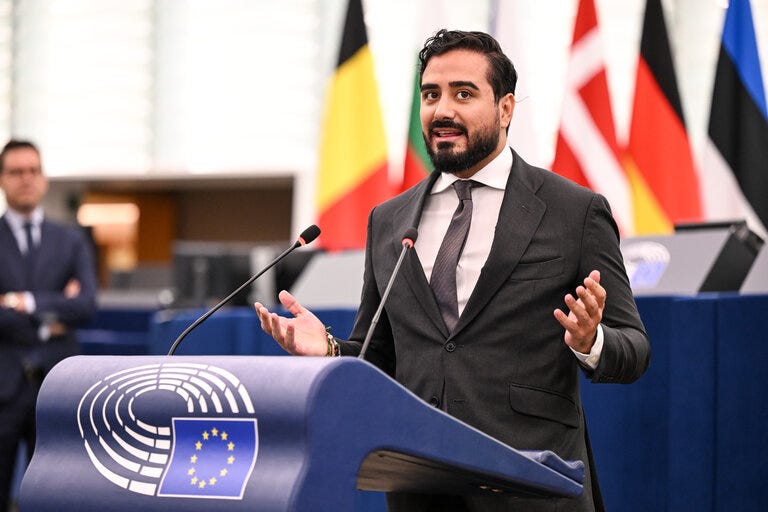🕯️Who Blacked Out Spain?
Plus: Carlos Alcaraz likes to party, and is Spain's economy slowing down?
Madrid | Issue #100 (that’s right, a hundred! 🥳)
🇪🇸 The Bubble is Spain's #1 English-language newsletter. We offer paid subscriptions and we’d be thrilled to have your support!
Blackout blame game
Now That the Lights Are Back on, It’s Time to Point Fingers

A historic blackout plunged Spain into darkness Monday morning, unleashing societal collapse of a profundity never seen outside of The Last of Us 🧟. Major cities descended into widespread looting, radioactive panthers roamed the streets, suspected witches were burned at the stake, and chorizo was added to paella with abandon.
Actually, wait. None of that happened. Admittedly, 344 flights were cancelled and some 35,000 people were stranded in trains that, without electricity, often stopped en medio de la nada. And there was the team of window cleaners who got stuck up one of the Cuatro Torres skyscrapers in Madrid. But at least judging from The Bubble’s “on the ground reporting”, a sizable chunk of Spain’s population took it upon themselves to rescue chilled beer from rapidly warming refrigerators and chat and/or dance the Macarena (literally) in city bars and plazas. Spain’s got civilization down. Just saying.
In the absence of information. In the 72 hours and counting since Spain’s Gran Apagón, we’ve learned that it was caused by (checks notes)… Well… We’re still literally in the dark about why an entire peninsula’s electrical grid collapsed. Thankfully, the absence of actual information has allowed Spain’s political class and commentariat to move from scientific to ideological criteria and speculate about the cause in ways that are, well, autobiographical. And so, without further ado, let’s delve into Spain’s Gran Apagón Blame Game!
Prime Minister Pedro Sánchez. Our first contestant is the man who is most likely to know what happened, being in the center of power. So the fact that he hasn’t said much suggests a) no one knows or b) the answer is really embarrassing.
So what did he say? With a resounding “This can never happen again” (thanks, Pedro), the PM made it clear that for him Spain’s heavy reliance on (not always dependable) renewables was not the problem and that he blamed the power system’s “private operators”, which include Iberdrola, Endesa, Naturgy and, most importantly, Red Eléctrica, which operates the national power transmission system.
Minor problem. While blaming large corporations is very on brand for Sánchez’s PSOE, the central suspect of this blame, Red Eléctrica, is 20% owned by the state, and its chair, Beatriz Corredor, is a former PSOE Housing Minister who was appointed to her (€546k a year!) role at Red by Sánchez’s government. Which is awkward.
And her response? For her part, Corredor says it’s wrong to blame renewables (more on that in a second) or a cyberattack and that she’s not going to resign.
Alberto Nuñez Feijóo and the PP. The opposition party and its leader are sure that whatever happened, the fault lies with Sánchez and the PSOE-led government.
Host with the most. Feijóo took advantage of his turn as host of the European PP’s conference in Valencia (more on that below) to tell an audience that included soon-to-be German PM Friedrich Merz and European Commission presi Ursula von der Leyen that the Sánchez government wasn’t forthcoming and was maybe lying.
Sounds fishy! Feijóo told European PP bigwigs, “In the last few hours, you've asked me many questions. What happened? Could it happen again? I'd like to give you answers. But I can't, because the official information isn't clear or verified. Who will take responsibility for the blackout?”
God bless the nukes. In a radio interview, Feijóo also suggested that Spain needs more nuclear power (and blamed this on Sánchez et al). "If, after what has happened, the government doesn't extend the nuclear projects, it will be complete nonsense," he said, and also criticized the "overwhelmed" government and its "ideological" management of the energy system (this presumably refers to diving headlong into renewables and not embracing nuclear).
People with theories. Those on the extremes of Spain’s political spectrum—and those off the spectrum—were sure there was a coverup (and renewables were to blame).
The Party Is Over. Alvise Pérez of the Se Acabó la Fiesta (The Party Is Over, or SALF) party claimed it was all a set-up. For whom? To justify fighting Putin? Not clear. "Either we are victims of European blackmail to justify the Von der Leyen war, or someone from inside or out has decided to play with our lives through something that the [Spanish security services] already claims is cyberterrorism…Be that as it may, they had already prepared this scenario." 🤔
Vox would love to, but… The leader of Vox, Santiago Abascal, can’t go as far as Alvise lest he look unserious, but he flies close. His take? First, the government must be hiding something, “like in COVID and the Valencia flood”. And then, maybe that it was a set-up to distract attention from Sánchez’s brother, who’d been implicated in court (again, more below): “Of course, we all wondered: Who's getting rich? Because before the lights went out, we learned that the president's brother was being put in the dock.” 🤔🤔🤔
Will the scientists help? In a word, no. They have ideas, of course. Perhaps reasonable ones. But they can’t totally know, not being on the inside.
Take CSIC energy expert Antonio Turiel. He says the fundamental problem isn't the failure of the grid, but its instability: “The reason is that a lot of renewable energy has been integrated without the responsive stabilization systems that should have been in place and that, furthermore, are now required by law.” Could be…
Al fin y al cabo. We’re not going to tell you exactly what happened. But we sympathize with Spain's upper court, the Audiencia Nacional. Their take? "It could have been an act of cyber sabotage against critical Spanish infrastructure.” But they don’t know. So they’re going to investigate. 🔎
More news below. 👇👇
🔔 Check out our sponsor—and an offer for Bubble readers
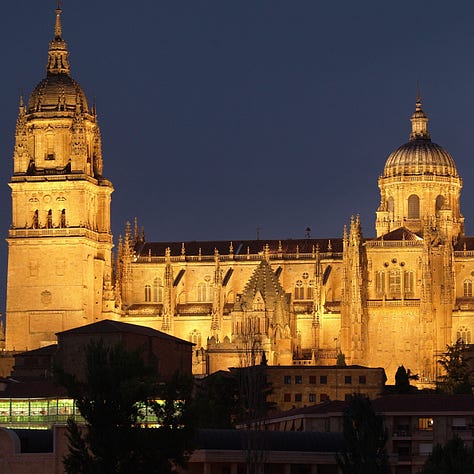

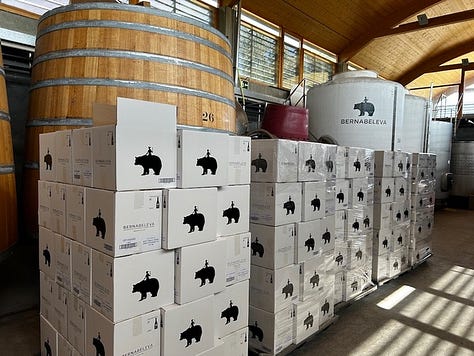
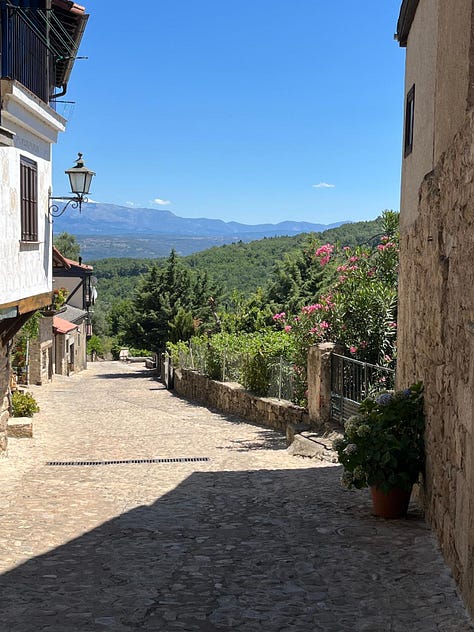

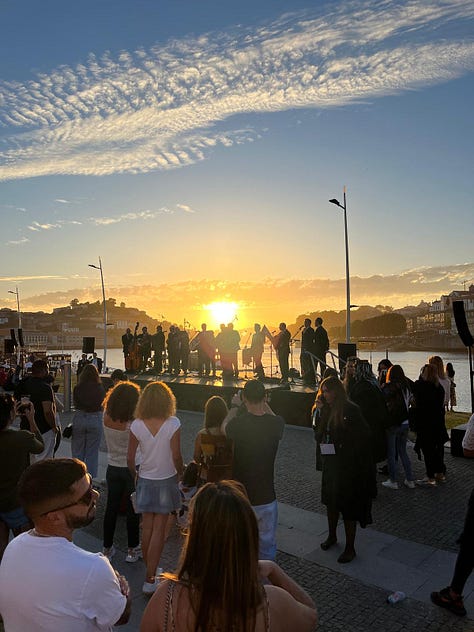
Iberian Wine Tours has a special offer for Bubble readers on one of its excellent and exclusive wine adventures—The Golden River Tour from Madrid to Porto in May 2026. (For objective, third-party praise, check out the gushing commentary and 147/151 5 ⭐ reviews on Feefo.)
Would you like to come along? Bubble subscribers have the chance to get in on this very intimate tour with a double discount—a $100 early bird discount for those who sign up before May 1, and another $100 off for Bubble readers with code BUBBLE100.
💬 Five things to discuss at dinner parties this week
1. 🔦 How the power outage helped Carlos Mazón and Pedro Sánchez’s brother escape the spotlight
It’s a party! The two-day European Popular Party (EPP) congress in Valencia, which opened this Tuesday, was supposed to be a glittering moment for the European center-right. A show of unity and leadership. Von der Leyen and Merz were there. Even Feijóo showed up with presidential energy, closing the congress by calling for the “reconstruction of Europe” during uncertain times.
No show. But one person who wasn’t front and center? Valencia regional president Carlos Mazón—who happened to be the host of the whole thing.
Convenient? You bet. This week also happened to be the six-month anniversary of the catastrophic DANA floods that killed over 200 people, the deadliest natural disaster in Valencia’s modern history.
Mazón’s response on that tragic day is still under scrutiny, and victims’ families had planned protests outside the event, accusing the PP of protecting him.
Why he skipped it. Monday’s massive blackout gave him the perfect excuse to ghost the party, as he had to suspend his appearance at the opening ceremony “to focus on the emergency” by, like visiting healthcare centers that were still experiencing communication issues due to the power outage.
Where’s Waldo? He reappeared quietly yesterday for a quick round of handshakes and a few words to reporters before flying to New York for a trade mission. In the photo op with the EPP leadership, he was nowhere to be seen.
Also (probably) relieved was PM Sánchez’s brother David, as just hours before the blackout, a Badajoz judge announced he was being processed for alleged administrative lawbreaking and influence peddling.
Special job for a special guy. The case centers on David’s 2017 appointment as coordinator of arts activities in the Badajoz provincial council.
Really, a special job. The judge says David knew a job was being created specifically for him and applied anyway, going through a fake interview just to make it look legal. Once hired, he allegedly used his influence to get the job tailored to his preferences (like not having to go to an office regularly and being allowed to focus on his opera work).
Look over there! But the power outage diverted public attention, and the story became secondary to the absolute chaos that was taking over the streets. 🤷♀️
2. 😱 Wait, is Spain’s economy slowing down?!

Got your attention, didn’t we? We’ve talked a bunch recently about how Spain’s economy has been supercharged—like, the IMF said it would be the fastest growing major economy in 2025, and its growth actually got an upgrade despite Orange Man’s trade war ‼️
But, but, but… Spain’s national stats agency, the INE, just published two data points that suggest a little slowish vibe. Now, there’s no reason to grab your security blanket and huddle under the kitchen table. But still…let’s talk about these numbers, eh?
GDP growth ⤵️ Spain’s GDP grew just 0.6% in Q1, its weakest quarterly pace since mid-2023. A tenth below last quarter’s 0.7% (which was revised down from 0.8%), and definitely a comedown from the red-hot 3.2% annual growth in 2024.
Oh. My. God. Why? Household consumption slowed, public spending flattened, and investment in construction practically hit snooze (from +2.4% to +0.4%). Still: year-on-year growth is a healthy 2.8%, and we’re on track to hit the 2.5% target from both the IMF. So, we’re cool, right? Or, maybe not…
Unemployment ⬆️ The jobless rate jumped to 11.36%, up from 10.61% at the end of 2024. That’s a rise of nearly 200,000 unemployed people, the biggest Q1 leap since 2013 (aka That Time No One Likes to Talk About).
Waiters not waiting. Most of the job loss came from—you guessed it—hospitality (down 142,800 jobs), which always dips after the holidays and especially dipped this year because Easter was in April (it fell in Q1 last year, but the resurrection came late this time).
Deep breath 🧘. Q1 is always weird. Spain’s labor market loves a drama-filled start to the year. Seasonal work ends, temporary contracts dry up, and anything dependent on tourism gets crabby. This year’s numbers look worse than usual but not historically crazy. And remember: employment usually rebounds in Q2 with the spring hiring wave. (At least we hope!)
What dragged things down ⚓? Besides the ol’ Easter thing, private consumption slowed. Blame weather (remember the rain?), war worries, and people finally looking at their bank accounts after the holidays and saying ¡Me cago en la leche! Things happen 🤷.
Or is this a warning? 🤔 Some economists say Spain’s luck might be peaking. Higher rates, a murky global picture, and the Trump tariff circus could spook investment. BBVA just shaved a few tenths off its growth forecast, and the economic think tank Funcas is officially in ambivalent shrug mode.
At least we have immigrants. Over half of the 500k+ jobs added last year went to foreign workers. Immigrants (especially Latin Americans) are quietly holding up the labor market while native employment slips. Shout out to the real MVPs 🫡
Final thought. Slowest GDP growth in almost a year. Worst Q1 unemployment jump in a decade. But is Spain still outpacing France, Germany, and the entire eurozone? Yes. Is your local bar still packed on Tuesday at 1 p.m.? Also yes.
So stay tranqui and carry on. But maybe keep an eye on your bank balance.
3.🇻🇦Pope Francis funeral: Royal handshakes, naughty selfies and a notable absence
Pope Francis’s funeral brought together more than 400,000 people in Rome this weekend in what was a historic yet intentionally modest goodbye, just as the Argentinian pope had requested.
The Spanish delegation included the King and Queen of Spain, two deputy PMs, Presidency Minister Félix Bolaños and PP boss Alberto Núñez Feijóo. And in true Spanish fashion, the solemn occasion quickly turned into a showcase of gossip, political awkwardness and viral controversy. Here are 3 things you may have missed:
1. Felipe VI (aka F6) shook Trump’s hand. The Spanish media loved it.
King Felipe VI and Queen Letizia crossed paths with Donald and Melania Trump, and the U.S. president engaged in a rare handshake with the monarch. Based on what we see, F6 was the one to reach out to Trump, but we weren’t there so we can’t be sure.
Comfort level. While Felipe seemed comfortable enough, local media noted the much more “awkward” greeting between Letizia and Melania. But, again, based on what we see, Melania doesn’t even get to say hi to the Queen. You be the judge.
2. Yolanda Díaz’s funeral selfie angered the conservatives.
Minutes before the funeral mass, Second Deputy PM Yolanda Díaz pulled out her phone and seemed to snap a cheerful selfie 📸 with fellow Deputy PM María Jesús Montero.
Dressed in mourning attire, the women appeared to smile for the camera and the image spread like wildfire on social media, drawing widespread criticism from Catholics and conservatives.
3. PM Sánchez did not attend. That also angered the conservatives.
Notably absent from the Spanish delegation was Prime Minister Pedro Sánchez. Officially, the reason was protocol: when the King attends, the PM usually does not, to avoid duplication. (In Spain, the King is the head of state and the PM is the head of government.)
But that hasn’t stopped the speculation. Critics argue Sánchez missed a key moment for international diplomacy and “there was no justification” for his absence (some even suspect personal reasons related to his family).
4. 🎾 Spain’s tennis wunderkind gets wake-up call
Spain’s new tennis golden boy Carlos Alcaraz shot to the top just as old age hip injuries forced king Rafael Nadal off the throne. Now Alcaraz has his own Netflix series, A mi manera (or My Way), and he’s getting some pushback from fellow players for revelations in it. Because, yes, he may have bagged $40.6m in prize money and four majors, but he’s still a (very big) 21-year-old kid…who sometimes acts like one.
Madrid no-show. In the week that he missed the Madrid Open for injury, both long-time champ Novak Djokovic and lesser-known Spanish veteran Roberto Bautista Agut took him to task for, let’s say, not treating the sport that made him with the respect it deserves. 🤔
First, Novak. When asked at the Madrid Open about Alcaraz’s coach Juan Carlos Ferrero’s statement to his pupil that you need to be a “slave” to tennis to be the best (and Alcarez seeming to find this a downer), Djokovic got surprisingly philosophical, which apparently is his thing now, being the (unbearded) old grey-beard 🧓🏻 of the sport these days.
It’s the truth. “It's a bit of a harsh word to describe the feeling of being trapped in the game,” he said. “But I get why he used it because tennis is an individual sport that demands 100%—physically, mentally, emotionally. It’s not just hitting a ball. It’s years of your life.” He even got a little wistful. “The tennis season is the longest in professional sports… It’s a lot of time you spend traveling without seeing your family.”
But deal with it, kid. Still, he wasn’t entirely sympathetic: “We're lucky to be able to do what we do. You know, most of us love tennis and here we are playing at the highest level. And that rewards us enormously.” Translation? Sure, kid, you can say whatever you want but don’t forget how good you got it.
And Roberto? Roberto Bautista Agut doesn’t have a Netflix series. What he does have is 20 years of tour experience and he wasn’t about to pull punches.
Party boy. What caught Bautista’s eye was Alcaraz’s revelation that after losing at Roland Garros in 2023—just three weeks before Wimbledon, and three days before he was due back in training—he went to Ibiza to “reventar” (literally, “burst”), partying hard despite his agent’s advice.
Ouch! “I don’t think Carlos is going to win Grand Slams going to bed at 7 a.m.,” Bautista told reporters. He also acknowledged Alcaraz’s smarts—“He’s a mature and intelligent guy”—but warned that wanting a long career like Djokovic or Nadal means playing at a high level for 15 years. And that probably means skipping a few bottle-service tables.
The real kicker? Bautista said all this after getting steamrolled by Alexander Zverev 6/2, 6/2 in the Madrid Open second round, so the man was not in the mood.
To be fair… After going to Ibiza following his 2023 Roland Garros loss, Alcaraz came back and won Wimbledon. And this year? He won Wimbledon after doing Ibiza again (see video above). So technically, it’s working?
5. 🐿️ The party’s over for The Party’s Over party
Self-destruction. It didn’t take long for Se Acabó La Fiesta (SALF), the far-far-right “party” that shocked Spain by getting 800,000 votes and winning three seats in the European Parliament last year, to start eating itself alive.
Remember Luis “Alvise” Pérez? He’s the conspiracy-peddling agitator and former Vox advisor who rose to fame on social media (mostly on Telegram) and ran a chaotic, BS-fueled campaign railing against “the system,” feminism, immigration, and political parties in general.
Success! Last year, he led a party (although technically it was a group of electors) called “The Party’s Over” (Se acabó la fiesta) that promised to shake up European politics with a “pure” list of outsiders. By getting 4.6% of the votes in Spain, SALF got three seats in the European Parliament.
The party is literally over. Less than a year into the new EU legislature, his mini-parliamentary group is already in ruins and his attempt to storm the EU with a party built on anti-system outrage has already turned into a spectacular internal meltdown.
What the hell happened? To the surprise of no one, Alvise is not only barely showing up for work, he’s also dealing with a litany of legal problems, including an ongoing Supreme Court investigation over €100,000 in undeclared campaign cash (which he’s proudly admitted to) and a growing list of criminal cases tied to defamation and data misuse.
Allies jump ship. The drama started when the two other SALF MEPs, Diego Solier and Nora Junco, were accepted into the European Conservatives and Reformists (ECR) group (a far-right bloc that includes Giorgia Meloni’s Fratelli d’Italia) without Alvise. Turns out ECR wasn’t eager to admit him because of his mounting legal problems.
Bad record. Since joining ECR, Junco and Solier have voted with the bloc and against Alvise’s line in nearly half of all votes. Meanwhile, Alvise has missed 16 of the 38 voting sessions in Strasbourg, making him one of the Parliament’s worst attendees.
Collision course. The SALF founder then suggested (so far without evidence) that Junco and Solier had been bought “by the arms industry” to support Ursula von der Leyen’s EU defense plan to rearm Europe.
Vote buying? “I don’t know if a lobby bought one of my MEPs,” he said, describing a weird anecdote involving a suitcase full of money left behind at dinner. “You assume you’re supposed to vote how they told you.”
Legal threats. His now-ex colleagues are threatening legal action. Solier responded via the ECR group, saying he denies the accusations. Junto is saying she’s waiting for Alvise “to get over his tantrum”.
Minions, go after them. Alvise is now encouraging his army of social media followers to go after his former allies.
An example. “We’re going to use Diego Solier as an example of what happens to people who, without being elected by anyone, take advantage of a seat to betray the voters,” he said to his nearly 680,000 subscribers on Telegram.
Drop him a line. The SALF leader first encouraged them to pressure Solier into giving up his seat, sharing his social media accounts and email address.
Sounds doxxy. He also claimed his followers wanted to give Solier a dose of “democratic syrup” if he didn’t step down, saying that “his personal data is still publicly accessible on LinkedIn and Google.”
See you next vote. SALF is polling at around 2% in Spain (which is still impressive, all things considered). We’ll see what happens at the next general election.
🔔 Wait! Check out our Instagram account
If you’re not following us on Instagram yet, you’re missing out. We’re posting exclusive content with our collaborators across Spain, breaking news updates, and pop culture coverage. Click on the post above and come hang with us!




